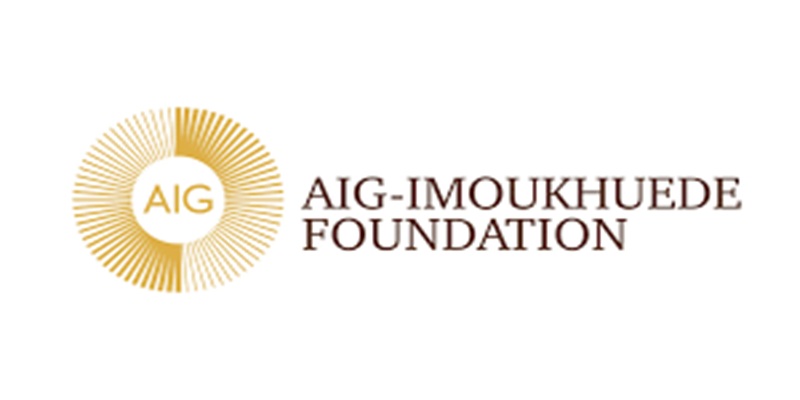Broadcasting
Creating Conditions for Sustainable and Inclusive Growth in Nigeria’s Digital Economy – An Urgent Call for Action

By Engr. Gbenga Adebayo
The renewed Hope Agenda clearly recognizes the power of technology and innovation to enable inclusive economic growth and development. It is an important acknowledgement that if we can create the conditions within which innovation can thrive, we can maintain, or even accelerate the already rapid growth in the digital economy.

Since the liberalisation of the telecoms sector in the early 2000s, the ICT sector’s contribution to GDP in Nigeria has grown progressively. Today, it delivers 17.89% of annual GDP. That is more than double the contribution of oil and gas. From the initial development of connectivity infrastructure and services, the sector has catalysed the emergence of innovative technology businesses across a range of sectors. From financial technology, to data, logistics, transportation, healthcare and education.
It also provides the infrastructure that enables the delivery of critical national development projects, from national identity enrollment and management, to elections and financial inclusion programmes that provide access to vital services for marginalised and vulnerable communities.
While this growth is impressive and the impact on socio-economic development so far has been clear, the journey is far from over. The recognition within the renewed hope agenda is that the sector has the potential to drive a new wave of inclusive economic development that can be the foundation of Nigeria’s economy for decades.
To deliver this, the government has clearly and publicly acknowledged the importance of creating an enabling environment for investment and taken a number of bold steps to address investment bottlenecks. From the tough decisions to unify the exchange rates, to the tightening of monetary policy and a focus on reviewing the tax regime to make it smoother and more efficient. They have also created target investment funds to support key sectors of the economy, from healthcare and agriculture to the small businesses that drive the economy.
The specific role of the digital economy is captured in the Federal Ministry of Communications, Innovation and Digital Economy’s 4 year 2023-27 growth plan, which envisages a further 15% increase in the contribution of the ICT sector to GDP growth, as well as 15% YoY increases in investment in the sector, both of which are projected to support a 100% increase in the annual net revenue that the sector delivers to government.
These are laudable and ambitious objectives, but they are impossible to achieve without deliberate sustained strategic and tactical action. If these actions are not taken, then the foundations that have been built are vulnerable and not only will these objectives be missed, but the industry will stagnate.
If you look carefully at the investment trajectory in the telecoms industry you can see two clear and concerning trends, which are being further exacerbated by the recent short term economic shocks. Between 2021 and 2022 industry CAPEX declined by 30.37% while industry Foreign Direct Investment declined by 46.9%. This happened at a time when operational expenses have surged and it has been exacerbated more recently by rising interest rates increasing the cost of debt. What that means is that industry expenditure has been diverted from capital (expansion and growth) to operations and that the investment environment has deteriorated. The ultimate manifestation of this has been the recent losses declared by major operators for FY 2023 and HY 2024.
This is further exacerbated by the multiple taxation ecosystem that continues to exist across Nigeria, with operators exposed to 54 different federal/state/local government taxies or levies, many of which are technically illegal. There is a perception that the telecoms industry is highly profitable and so can be treated as a ‘cash cow’ – we are now seeing the impact of this, and even though it is clear operators are suffering, more new taxes continue to be considered by the national assembly.
This is a critical moment. It is an inflection point. If we act, we can establish the platform for growth and the delivery of the government’s ambitious objectives. If we delay, or fail to take the decisions necessary, then the industry is likely to go in the wrong direction. This will not only damage the interests of investors, many of whom are Nigerian, but also impact the emergence of the innovative services and products that ride on telecoms infrastructure.
We believe that decisive action can turn this moment from a crisis into an opportunity. Following extensive research, the Association of Licensed Telecom Operators of Nigeria (ALTON), has developed a clear set of recommendations that can catalyse the next wave of growth in the industry, and for Nigeria. These are:
- Take immediate action on retail pricing: In the short term, this means an industry wide increase to retail tariffs, which were last reviewed in 2016, when the exchange rate was N373/$ and inflation at 18.4%. No industry can survive indefinitely in a rapid inflation environment and not be allowed to increase retail prices. Regulators have denied all recent requests, despite approvals being granted in other critical industries from power to fuel and transportation.
- Make industry pricing sustainable: Every price increase requires individual pre-approval from the regulator, which continues to use 2016 pricing guidance. This is an outdated regulatory model that is not representative of global best practice. ALTON recommends the implementation of a general authorization regime for tariff administration under which the NCC sets general pricing principles and requirements and operators independently align their tariffs with the set pricing requirements through self-certification, eliminating the need for prior approval.
- Provide concessionary funding to enable CAPEX investment: To continue to drive investment and growth in infrastructure, the industry needs access to concessionary finance. Establishing a dedicated financing facility will help mitigate the impact of recent interest rate increases and enable more investment.
- Build and expand regulatory capacity: With technology driving rapid change, we need to rapidly upskill the sector’s regulators to ensure the implementation of well structured regulation that provides the right balance between protection and investment incentive. Regulations need to be co-developed more constructively with industry on a regular basis.
If we can deliver each of these things, then we will have established the basis for long-term sustainable growth in the telecoms sector, and through it catalyse dynamic growth in Nigeria’s broader digital economy. This is achievable, and the time is now.
Engr. Adebayo is the Chairman of the Association of Licensed Telecom Operators of Nigeria (ALTON)
Broadcasting
US invests $115m in counter-drone tech for World Cup security


Drone
The US Department of Homeland Security (DHS) will invest $115 million in counter-drone technology to safeguard the 2026 FIFA World Cup and events marking America’s 250th independence anniversary, creating a dedicated office for rapid drone system deployment.
Homeland Security Secretary Kristi Noem described drones as “the new frontier of American air superiority,” stressing the need to counter threats from drug cartels using unmanned aircraft for smuggling and surveillance, alongside incidents like a 2025 NFL stadium drone flight and 2024 New Jersey sightings.
The funding supports 11 World Cup host cities expecting over one million visitors, building on FEMA’s $250 million grants to those states and addressing risks heightened by cartels’ advancing tech, including a reported FBI tracking plot in Mexico.
DHS has conducted over 1,500 counter-drone missions since 2018, with the new Program Executive Office accelerating acquisitions amid President Trump’s border security push.
Broadcasting
Youth Talent Takes Center Stage as T2 Ignites High-Octane Rap Battles @ Carnival Calabar

The energy at the Carnival Calabar Music Concert reached a new high as T2 introduced a first-ever rap battle platform, giving young Nigerians an electrifying stage to showcase their talent, creativity, and self-expression while competing for exciting prizes.

Held at the U.J. Esuene Stadium, the activation blended pulsating music, vibrant culture, and youthful energy into a dynamic celebration that kept thousands of carnival-goers fully engaged from start to finish.
Eight fearless contestants stepped into the spotlight, going bar for bar in an intense lyrical showdown. Rappers fused local languages, pidgin, and sharp punchlines, creatively weaving the T2 brand into their verses.
Anchored by the energetic hosting duo MC Double I and MC Princess, the rap battles thrilled over 16,000 attendees, including the Governor of Cross River State, Senator Bassey Otu, delivering an unforgettable showcase of youth talent and cultural expression.
With prizes including fridges, gas cookers, sound systems, and airtime top-ups, the competition remained fierce throughout the night. After two high-energy rounds narrowed the field to a five-man final duel, Emmanuel Eye emerged as the overall winner, taking home the grand prize — a fridge.
“I never expected this at all,” Emmanuel said. “I came to the concert like anyone else, and hearing about the T2 rap battle was a surprise. When I got the chance to perform, I just went for it. Being named the overall winner is amazing, and I’m grateful to T2 for creating this platform to showcase our talent.”
Beyond the stage performances, T2’s presence added a digital layer to the carnival experience. As part of its role as Digital Technology Partner of Carnival Calabar, the brand introduced the MyT2 App as a lifestyle companion, while also enabling line reactivations, airtime top-ups, and instant rewards for hundreds of attendees, blending technology seamlessly into the live celebration.
Commenting on the activation, Chinelo Manefo, Specialist, Events and Sponsorship at T2, said:
“The energy from both the rappers and the crowd was incredible. This platform reflects exactly what T2 aims to create — a celebration of youth, creativity, and culture, enhanced by technology that connects people and experiences. Seeing the audience so immersed shows how music and performance can empower the next generation.”
The Carnival Calabar Music Concert, headlined by Tiwa Savage, Timaya, and top local performers, was further energized by T2’s interactive rap battle platform. By blending music, culture, youth expression, and digital innovation, T2 reinforced its commitment to championing Nigeria’s next generation, giving young creatives a stage to shine while enriching how they experience the festival.
Broadcasting
Aig-Imoukhuede Foundation Wrapped Up 2025 with Real Change in Governance, Health, Media Across Africa

Aig-Imoukhuede Foundation has announced its 2025 achievements, marking a year of accelerated impact, systemic reforms and innovation in public leadership and service delivery across Africa.

Aig-Imoukhuede Foundation
A statement issued on Wednesday in Lagos said the foundation strengthened governance, improved primary healthcare, drove digital transformation and elevated media’s role in promoting public sector accountability.
It said the AIG Public Leaders Programme (PLP) trained 72 public sector leaders from Nigeria, Egypt, Tanzania, Cameroon, Zambia, Malawi and Kenya—its fastest growth to date—bringing the alumni network to 309.
These alumni are driving 237 reform projects to enhance public institutions, from faster decision-making to greater transparency, with nine promoted to higher roles for their contributions.
On civil service modernisation, the foundation accelerated digitalisation at the Office of the Head of the Civil Service of the Federation (OHCSF), streamlining 19 processes and achieving a 75 per cent increase in work speed through automated workflows.
It also trained over 400 officials from the Federal Ministry of Justice, Federal Civil Service Commission and Federal Ministry of Innovation, Trade and Investment in digital skills to support the FCCSIP 25 initiative and ongoing digital rollouts.
In healthcare, the Adopt-A-Healthcare-Facility Programme renovated four primary healthcare centres in Edo State, boosting antenatal visits by 73 per cent, immunisation coverage over 100-fold and fully vaccinating 554 children, while supporting 6,788 patients.
The foundation recognised 18 outstanding public servants with ₦500,000 each via the Emily Aig-Imoukhuede Endowment Awards and received a partnership award from the OHCSF for civil service reform efforts.
To empower media, it trained 50 journalists from top Nigerian media houses in impact storytelling, data analysis, visual and ethical reporting to better inform citizens on public sector changes.
Over five years (2021–2025), the foundation invested £2.6 million in PLP, saved ₦2.38 billion for the public sector through capacity building, trained 1,500+ civil servants, upskilled 660 digitally, trained 40 permanent secretaries and awarded 33 scholarships driving seven policy changes.
Other milestones include digitising 5,000 files, automating 333 processes, a 61 per cent efficiency gain, 60 per cent digital file creation at OHCSF, 128 excellence awards, 116 process reforms, 23 advocacy projects, 25 capacity initiatives, 18 podcasts, four healthcare articles, three policy papers, 23 adopted PHCs (four renovated) and 878+ fully immunised children aged 0–9 months.
Executive Vice Chair, Mr Aigboje Aig-Imoukhuede, said: “2025 was a year of real, measurable impact. From training hundreds of public servants to improving healthcare, helping ministries go digital, and equipping journalists to tell stories that matter, our work is making governments work better for citizens and communities across Africa.”

 E-Financial3 days ago
E-Financial3 days agoSEC Hikes Minimum Capital Requirements for Market Operators After a Decade

 Telecom3 days ago
Telecom3 days agoStudy Shows Blocks in Telegram are Pushing the Underground Out

 News3 days ago
News3 days agoNigeria Off EU High-Risk Money Laundering List in Major Financial Win

 News3 days ago
News3 days agoNGX Unveils Net-Zero Plan for Greener Capital Market

 Telecom3 days ago
Telecom3 days agoGalaxy Backbone Marks Two Decades of Powering Nigeria’s Digital Evolution

 Telecom3 days ago
Telecom3 days agoVodacom Crowned Africa’s Top Employer 3rd Year Running on Innovation, Ethical AI

 Telecom3 days ago
Telecom3 days agoGalaxy Backbone Marks 20 Years, Tops FG Website Scorecard

 E-Financial21 hours ago
E-Financial21 hours agoHere Are Nigerian Banks That Have Secured Their Licences



























